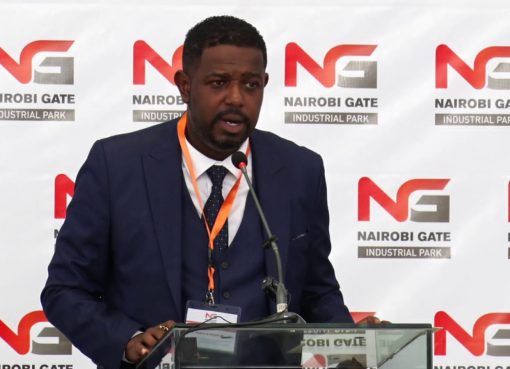Fish farming, with its myriad benefits, is not just a practice; it’s a beacon of hope for farmers seeking to diversify their income streams and embrace a more resilient agricultural model.
Evans Moseti, a farmer in the village of Nyansangio, nestled within Mosora sub-location, Nyamache sub-county, Kisii County, welcomes young farmers to the exciting world of fish farming, where innovation meets opportunity, giving farmers a chance to dive into a sea of endless possibilities!
Against the backdrop of lush greenery and rolling hills, Evans’ farm stands as a testament to the resilience and ingenuity of farmers in rural communities. Here, in the heart of Kisii County, Evans has embraced fish farming not just as a livelihood but as a passion-driven mission to foster economic growth and environmental sustainability.
What began as a single fish pond, measuring 4 by 6 feet, has blossomed into a thriving enterprise, featuring five ponds that signify not just growth but a commitment to sustainable agriculture. This remarkable expansion stands as a testament to Evans’ dedication and vision, fueled by his unwavering passion for aquaculture.
According to Evans, it was his deep-seated passion for aquatic life that initially propelled him into fish farming, long before the intervention of the county government. His dedication and hard work, coupled with personal savings, propelled him forward, laying the foundation for a flourishing fish farming venture.
With the support from the Department of Agriculture, Livestock, Fisheries and Cooperative Development of Kisii County Government, Evans’ journey in fish farming has been catapulted to new heights.
Evans Moseti’s story is not just about individual success but a narrative of how the fusion of personal passion and governmental support could elevate traditional farming practices, bringing prosperity to both farmers and the community at large.
In his early days of venturing into fish farming, Evans immersed himself in multiple activities that defined the life of a farmer. With unwavering determination, he undertook each task with meticulous care and attention to detail. He located the ideal spot for his fish farm, a calm haven tucked away in Nyansangio’s lush surroundings.
Undeterred by the challenges that lay ahead, he rolled up his sleeves and single-handedly constructed his first pond, a labour of love that would serve as the cornerstone of his burgeoning enterprise.
Bringing water to the pond became his daily ritual, a testament to his perseverance and resourcefulness in the face of adversity. Even when gravity water wasn’t readily available, Evans found innovative solutions, recognizing the value of every drop, including harnessing rainwater to sustain his precious aquatic inhabitants.
“Fish can survive by even water from the rain; sometimes it can take a whole month without gravity water,” Evans remarks, highlighting his adaptability and resilience in the face of fluctuating water sources.
With the groundwork laid and the stage set, Evans carefully prepared the pond, ensuring optimal conditions for the thriving ecosystem he envisioned. And then came the moment of anticipation and excitement; stocking the pond with fifty fingerlings, a modest yet promising beginning to his aquaculture journey.
These fingerlings, received from the Fisheries Department, represented more than just fish; they symbolized hope, opportunity, and the potential for growth.
With years of hands-on experience under his belt, Evans understands the critical role that food plays in the growth and development of his aquatic companions. He emphasizes the importance of providing a balanced diet tailored to the specific needs of the fish, ensuring they receive the nutrients necessary for healthy growth and vitality.
According to Evans, the duration of rearing can vary significantly, typically spanning eight to twelve months, depending on the availability of food and environmental factors. He closely monitors the conditions in each pond, adjusting his approach as needed to optimize growth and maximize yield. However, Evans is quick to caution against feeding the fish during rainy periods, citing potential waste and inefficiency.
Despite the remarkable progress Evans Moseti has achieved in his fish farming venture, it hasn’t been without its share of challenges. One of the hurdles he faces is the occasional loss of fingerlings during their introduction to the ponds. Despite his best efforts to ensure a smooth transition, some fish inevitably succumb to the stresses of relocation. Additionally, predators pose a constant threat, with birds of prey and even human interference jeopardizing the safety of his precious stock.
However, amidst these challenges, the benefits of fish farming far outweigh the setbacks, providing Evans with a glimmer of hope for a promising future. Through his dedication to this endeavor, Evans has not only sustained himself but has also made significant strides in improving the lives of his family.
He proudly shares how the proceeds from his fish farming enterprise have enabled him to pay for his children’s school fees, ensuring they have access to quality education. Further, the income generated has allowed him to diversify his agricultural pursuits, branching out into bee farming and coffee cultivation.
One of the key advantages Evans highlights is the efficiency of fish farming in terms of land usage. “Unlike traditional farming methods such as maize cultivation, aquaculture requires relatively little space yet yields substantial return,” he says.
This efficient use of resources according to Evans, not only maximizes productivity but also minimizes environmental impact. Additionally, he says that the abundance of fish harvested from his ponds serves as a valuable source of protein for his family, reducing their reliance on store-bought food items and stretching their budget further.
Evans fondly refers to his fish farming operation as a “golden opportunity,” emphasizing the immense benefits it has brought him and his family. Eager to share his knowledge and expertise with others interested in embarking on a similar journey, Evans extends an open invitation for anyone to seek education from him, free of charge.
His generosity and altruism reflect not only his passion for fish farming but also his desire to uplift and empower others in his community.
As Evans reflects on his journey, he recalls the challenges he faced and the obstacles he overcame. Amidst the trials and tribulations, there was an unwavering sense of purpose, a burning passion that fueled his every endeavor. For Evans, fish farming is more than just a livelihood; it’s a calling, a lifelong commitment to sustainability.
Today, Moseti’s fish farm stands as a testament to his indomitable spirit and unwavering dedication. With five ponds brimming with life, each teeming with more than a thousand fish, his once humble endeavor has blossomed into a thriving enterprise. His journey from a novice farmer with a single pond to a seasoned expert overseeing multiple thriving ecosystems.
This relentless pursuit of success has not only solidified his position as a formidable force in the aquaculture industry but has also earned him recognition as one of the best fish farmers in Kisii County.
With the demand for fish on the rise due to population growth and a decrease in production from catch fisheries, aquaculture has become increasingly vital in bridging the gap between supply and demand.
According to the State Department for Fisheries and the Blue Economy’s fisheries annual statistical bulletin report of 2021, the aquaculture sector is gaining momentum, poised to play a pivotal role in meeting the nation’s growing appetite for fish.
However, despite its promising trajectory, there remains a significant disparity between projected demand and production, a gap that is expected to widen in the coming years.
By the year 2025, the projected demand for fish is estimated to reach 360,000 metric tons per year, underscoring the urgent need for sustainable and scalable solutions to bolster aquaculture production.
In this landscape of opportunity and challenge, farmers like Evans Moseti stand at the forefront of Kenya’s aquaculture revolution, demonstrating the immense potential of fish farming to not only meet the nation’s dietary needs but also drive economic growth and empower rural communities.
By Misheba Alfred and Charles Onkui





